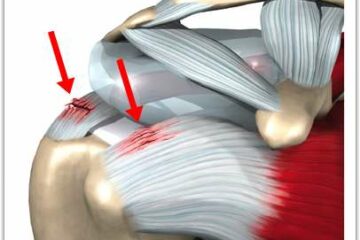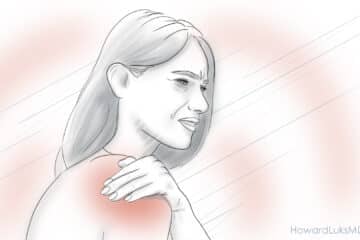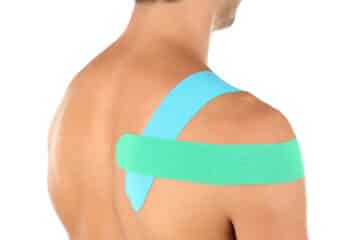
Does rotator cuff tendinosis progress?
Since rotator cuff tendinosis represents a(n) (age related, genetic or post-traumatic) degenerative condition, and degenerative conditions by definition usually progress, the unfortunate answer is yes. However, that does not always correlate with worsening of your pain or symptoms. Some people can have severe tendinosis and insignificant pain. Also, the rate of progression is not very rapid. When I describe rotator cuff tendinosis to people I liken it to their favorite pair of jeans — where the area around the knee is wearing away. With time you will eventually have a hole there. That is what we refer to as a degenerative rotator cuff tear. Again, this is not a rapid progression. Trauma, falls, etc can hasten the progression, but this is not typical. Once the tendinosis progresses to the point where some of the rotator cuff has separated from the bone, you now have a partial thickness rotator cuff tear.
Do partial rotator cuff tears progress?

Great question — and a controversial question too. Some older scientific studies show that nearly 50 percent of partial thickness tears can progress to full thickness rotator cuff tears, however, more recent studies call that into question. Given the scientific literature that exists, you should probably NOT consider surgery to prevent a partial tear from becoming a full tear.
If you suffer from rotator cuff tendinosis or a partial rotator cuff tear — you were treated and your symptoms resolved — what next? A repeat MRI or ultrasound study in a year or so to visually examine the rotator cuff and be sure the tear has not progressed. Pain or lack of pain is not an indication of progression since many other structures within the shoulder can hurt — such as the biceps tendon, the bursa, the other muscles, etc.













Son 15 years old has small, low-grade articulate surface partial thickness tear of the supraspiatus tendon. What causes this and will it get better without surgery? Should he get cortisone injection or debridement?
Good question … these tears in children are usually seen in overhead athletes. The rotator cuff injury is usually secondary to subtle instability where the shoulder ligaments are little loose from overhead activities. Therapy is usually the answer for a 15 year old… cortisone injections frowned upon in this age group. Surgical debridement rarely necessary… and then only if PT fails and the doc is sure that instability is not an issue.
In April 2017, I was having some mild pain in my left shoulder. I went to Orthopedic surgeon, who gave me a cortisone injection and told me to go to PT. It cleared up 100% and only went to PT twice. In October it was back with night pain and some loss of ROM. Did PT and received another cortisone injection, after 10 sessions I requested an MRI. The MRI showed a high grade tear of the mid to posterior surpraspinatus tendon 11 mm extending to the junction of anterior infrinatus. Mild proximal long head bicep tendinosis. Bottom line I went back to doc and he said to manage conservatively no surgery no PT. I got second opinion and he wants to do surgery. I have very little discomfort. Should I get third opinion and could I wait 7 months for surgery. I am a 69 year old female. Just don’t understand the drastically different opinions
These small areas of rotator cuff degeneration are very common. Even the American Academy of Orthopedic Surgeons doesn’t recommend surgery on small degenerative rotator cuff issues. Typically, with degenerative rotator cuff disease the initial treatment is PT. If people do not respond to PT and their quality of life is poor then we might recommend surgery. We typically do not recommend surgery for tendinosis and partial tears without attempting physical therapy.
I am a 83 year old swimmer. I am experincing shoulder and upper arm pain at night. I swim laps for an hour three times a week. Should I stop swimming?
HI Shirley …
Kudos for staying so active.
Many people with rotator cuff or shoulder pain who are in their 80s have age-related degenerative changes. ~75% of people in this age group have enough fraying and degeneration of the rotator cuff that a “tear” might show up on an MRI (And these “tears” do not require surgery). This is not meant to scare you… bear with me. The point is that our parts wear out. Your swimming is not causing those changes to worsen. If anything, your activities are helping to keep your muscles in great shape. Exercise has so many benefits for our health. For that reason, I almost never ask my own patients to stop an activity they enjoy. Pain does not often mean that you are causing harm.